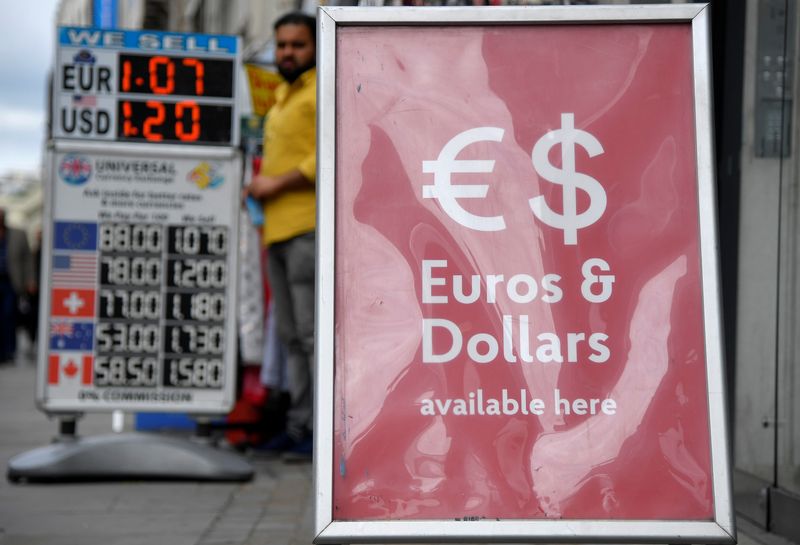LONDON (Reuters) - Sterling reversed course on Friday as the dollar strengthened after U.S jobs data to leave the pound set for its biggest weekly fall against the greenback in eight weeks.
The British currency was last down 0.79% against the dollar at $1.2643, and set for a weekly fall of 0.45%, its most in a week since early December.
It had been flat on the day and set for its first weekly gain of 2024 until the release of data showing that U.S. employers added far more jobs in January than expected, reducing the chances of near-term Federal Reserve interest rate cuts.
That sent the dollar soaring across the board, and the dollar index, which tracks the currency against six peers, was up 0.8%.
“If there was any doubt that the March cut was still being debated I think that has been put to bed which is at least helpful for a clarity perspective,” said Kevin Gordon, senior investment strategist, Charles Schwab (NYSE:SCHW), in New York
The pound, which is vulnerable to swings in overall market sentiment, dropped more than the euro, with the European common currency last trading 0.1% higher at 85.38 pence.
Sterling was still set to finish the week stronger on the euro for the sixth week in a row, however.
Thursday's Bank of England (BoE) meeting was the main event for the pound this week. It came in largely as expected with the BoE holding rates steady and dropping language from its statement about potentially tightening policy further if needed.
However, Governor Andrew Bailey pushed back on suggestions that interest rate cuts were coming close.
"For me, the key question has moved from 'How restrictive do we need to be?' to 'How long do we need to maintain this position for?'" Bailey told a press conference.
The pound rose after the decision, though some analysts were nervous about chasing it higher.
Markets are currently priced for four 25 basis point rate cuts from the BoE this year, with roughly a 50% chance the first one could come as soon as May.
The "BoE outcome reinforces our caution in building long positions in GBP. The possibility of an earlier start to BoE rate cuts poses a downside risk to the pound," said analysts at BNP Paribas (EPA:BNPP).
They said by their calculations long sterling positions were the largest among G10 currencies, leaving the pound vulnerable to a snap back.

Investors were also assessing a survey published by U.S. bank Citi on Friday that showed the British public's expectations for inflation increased in January, potentially because of worries about disruption to shipping in the Red Sea.
Also on Friday, BoE chief economist Huw Pill said the right time for a rate cut was "still some way off".